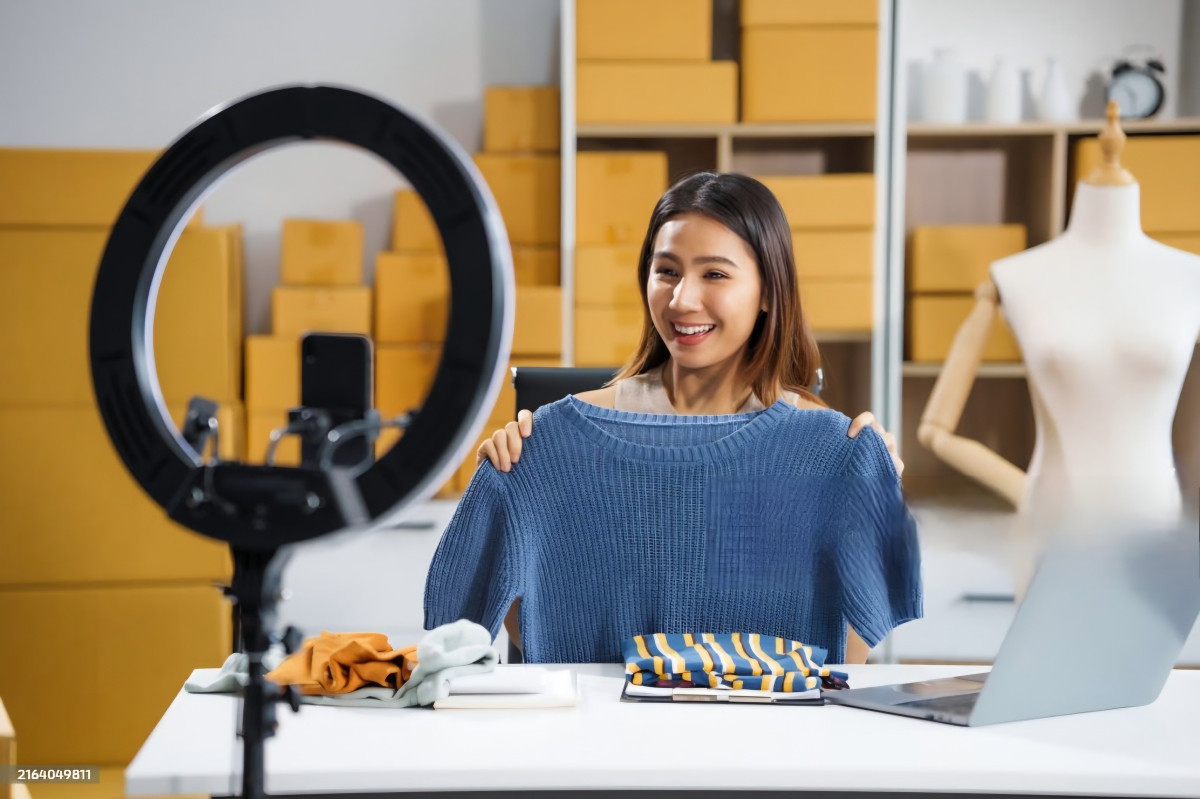
In Vietnam, when KOLs or artists falsely advertise on social media, they then apologize online, delete the ads, or pay fines if requested. Under Decree 38/2021/ND-CP, individuals face VND60-80 million for false advertising.
With their earnings of hundreds of millions, even billions of dong, from advertising and sales on social media, this penalty is seen as too light and not enough of a deterrent. Repeat offenses occur, and many other KOLs and artists then feel free to do the same thing.
T.M.H, a businessman working with Chinese partners in tea and agricultural products, said Vietnam’s current regulations fail to prevent violations. He said adopting China’s stricter measures is needed.
In China, authorities strictly regulate livestream ad sales with three key elements: “What is being sold? Who is selling? and Who are the targeted buyers?”
Livestream sellers must declare to authorities what they’re selling, providing details about products such as ingredients, origins, quality certifications, and quantities. They must also specify who is selling (names of companies and KOL channel details), and clearly clarify who own the goods, which means tracking down the origin of goods.
Livestreams in violation face heavy penalties. During the 2024 Mid-Autumn Festival, a Chinese company promoted Meisun mooncakes on livestream, claiming they were premium Hong Kong products from a 20-year-old company, priced at 169 yuan ($23.3) on livestream and 200 yuan ($27.6 USD) at the physical shop.
Viewers soon discovered that the cakes were made in Guangzhou and sold for 59 yuan ($8.16) per three boxes.
On September 17, authorities in Hefei in Anhui province, where the violating company was located, investigated the company for “misleading consumers” through promotions. On September 26, the influencer couple’s company was fined 68.95 million yuan (over VND200 billion) and suspended from online commerce.
For violations harming public health or children, or violations involving fake goods, perpetrators face criminal charges, while livestream sellers may be charged as accomplices, as seen in recent Chinese cases of waste oil and fake milk sales.
“Violators may face confiscated earnings, fines, and ‘banning’ by shutting all livestream channels, which is their biggest fear. It takes time to build a sales channel. Therefore, they will not risk violating laws to have their channels eliminated,” H said.
Nguyen Duy Vi, CEO of Buzi Agency, agreed that KOLs or artists must be accountable for their behaviors (false advertising), and must not deny responsibility by claiming that they were “deceived by brands” or merely reviewed products.
KOLs, complicit in the violations, need to be "banned" from platforms and, more seriously, criminalized according to the law.
Le My